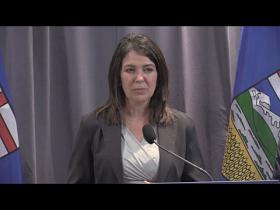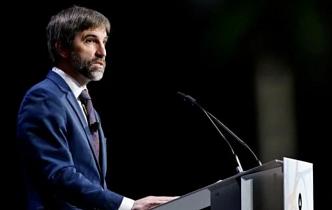Quebec may fall short of its greenhouse gas reduction targets, François Legault suggests
Environmental groups say reductions are crucial as legislative session gets underway
Environmental advocates in Quebec are urging Premier François Legault to stick to the province's existing greenhouse gas reduction targets, even as he signals his government may fall short of the next benchmark.
Legault indicated the short-term targets made by the previous Liberal government, as part of its commitment to the Paris climate agreement, will be reviewed.
"Before having any kind of promises for 2020 we first need to look at what is the actual situation," he told reporters Tuesday, the first day of the fall legislative session.
"What I can tell you today is that I'll make sure ... [we] will reach the targets of 2030."
Philippe Couillard's Liberal government had committed Quebec to reducing emissions 20 per cent below 1990 levels by 2020.
Legault says the last available numbers, from 2015, show the province is headed toward failure and he doesn't want to make a promise he can't keep.
The premier will give a major speech in the National Assembly on Wednesday, during which he will outline his government's goals for its first year in office. He is not expected to spend much time discussing the environment.
But a collection of environmental groups, unions and non-profit organizations issued a statement Tuesday calling on Legault to make reducing emissions a priority.
The statement said the targets are "fundamental" to "the fight against climate change in Quebec."
Where do they stand?
The legislature's three opposition parties held a joint news conference last week calling on the Coalition Avenir Québec government to come up with a clearer environmental policy.
Environmentalists have been waiting anxiously to see where the government stands on greenhouse gas emissions.
Policies aimed at cutting emissions did not figure prominently in the CAQ's election platform, which included promises to build more suburban roads.
Quebec's cap-and-trade system, established in 2013, has helped roll back emissions produced by industry.
But those generated from transportation — such as cars and trucks — have continued to rise. They now account for nearly half of the province's total emissions output.
As it stands, Quebec isn't on track to meet the levels it committed to under the Paris agreement.
By 2030, Quebec's emissions are supposed to be 37.5 per cent lower than they were in 1990.
The province is only about a quarter of the way there, at nine per cent below that level.














